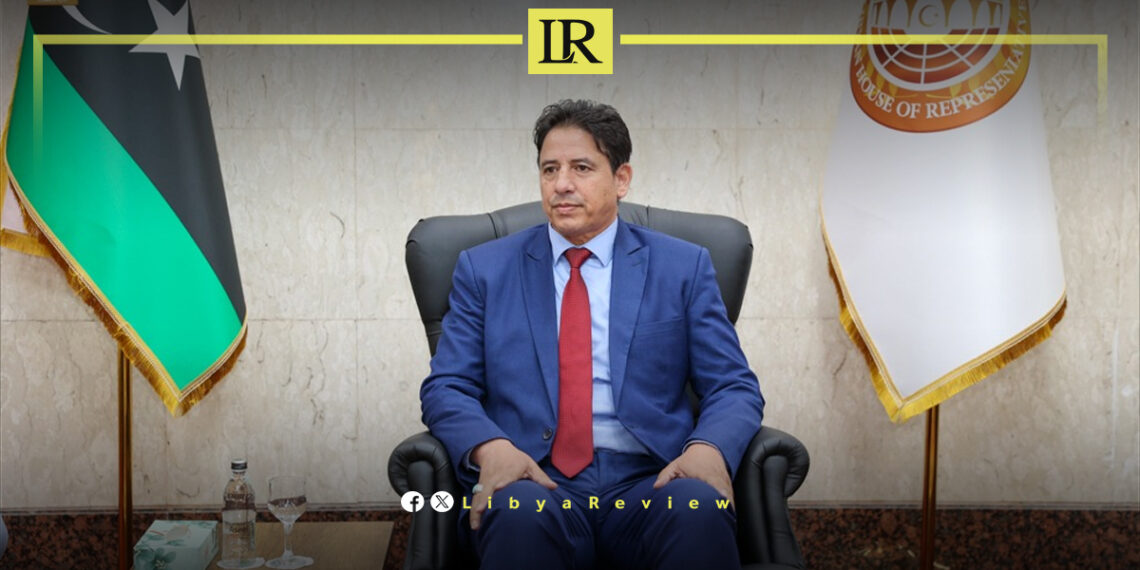The Chairman of the Foreign Affairs and International Cooperation Committee of the Libyan House of Representatives, Youssef Al-Agouri, emphasized the necessity of halting foreign interference in Libya during his participation in a scientific conference titled “Foreign Interventions and Their Impact on the Libyan Crisis.” The event was organized by the Libyan Center for Studies and Policy Making in Tripoli.
The conference brought together a distinguished group of researchers, academics, and specialists from various Libyan universities. Numerous research papers were presented, addressing external interference in Libya and evaluating the role of the United Nations Support Mission in Libya (UNSMIL).
In his opening speech, Al-Agouri stressed the importance of preserving Libya’s sovereignty and unity. He highlighted that achieving this goal requires ending foreign interventions, stabilizing the country through the adoption of a permanent constitution, fostering national reconciliation, and unifying the executive authority.
Furthermore, Al-Agouri called for free and fair elections, allowing Libyans to choose their representatives. He invoked the legacy of Libya’s founding fathers, who prioritized the nation’s independence and resisted foreign influence. He urged all Libyan stakeholders to unite their efforts to end foreign interventions and ensure the withdrawal of all foreign forces from Libyan soil.
Libya has been in chaos since a NATO-backed uprising toppled longtime leader Muammar Gaddafi in 2011. The county has for years been split between rival administrations.
Libya’s economy, heavily reliant on oil, has suffered due to the ongoing conflict. The instability has led to fluctuations in oil production and prices, impacting the global oil market and Libya’s economy.
The conflict has led to a significant humanitarian crisis in Libya, with thousands of people killed, and many more displaced. Migrants and refugees using Libya as a transit point to Europe have also faced dire conditions.
The planned elections for December 2021 were delayed due to disagreements over election laws and the eligibility of certain candidates. This delay has raised concerns about the feasibility of a peaceful political transition.
Despite the ceasefire, security remains a significant concern with sporadic fighting and the presence of mercenaries and foreign fighters. The unification of the military and the removal of foreign forces are crucial challenges.


